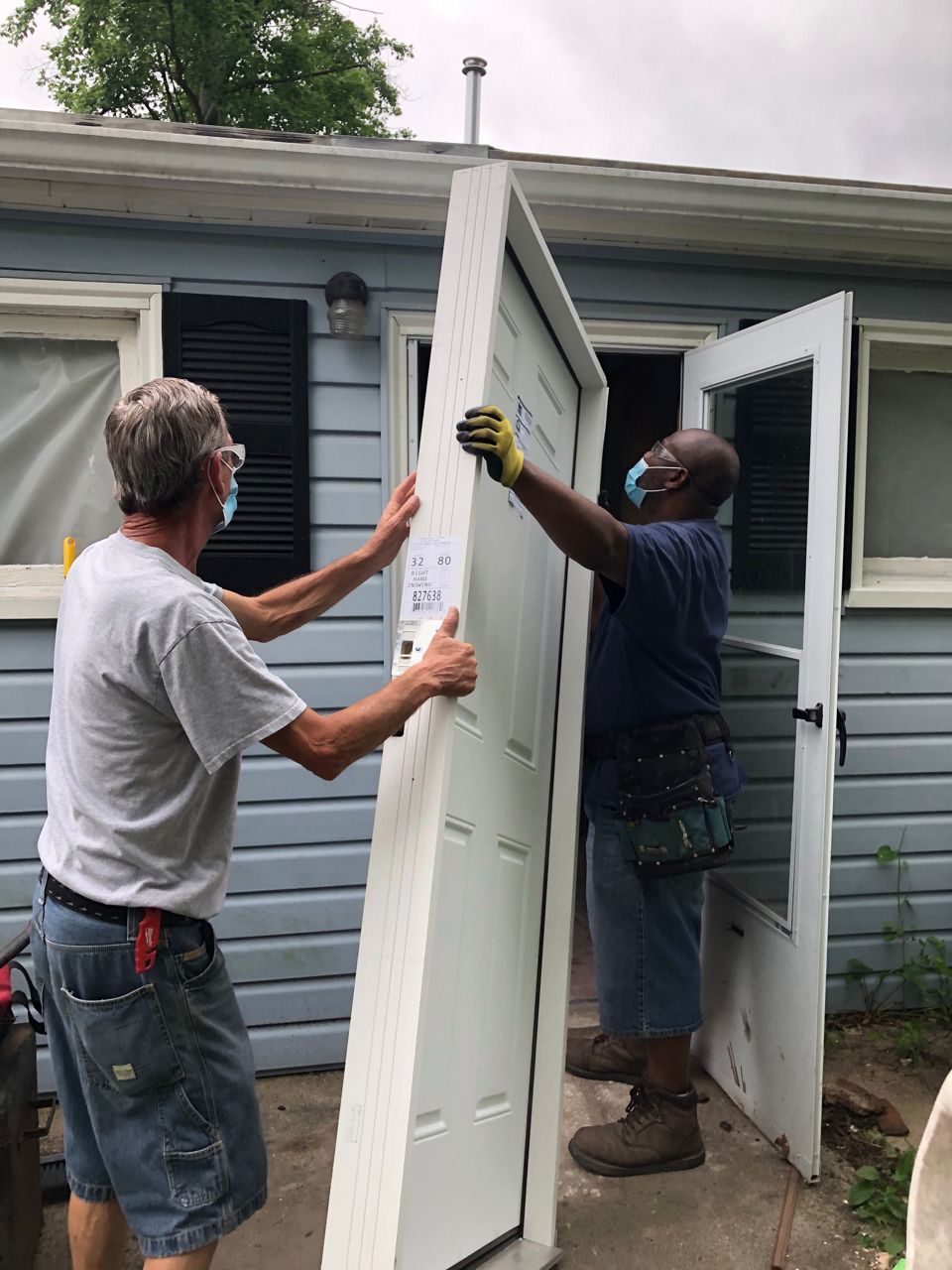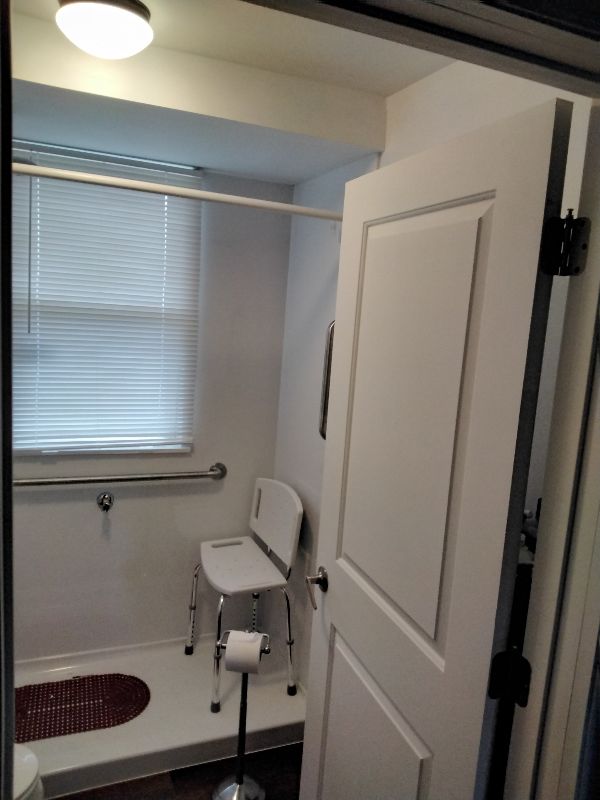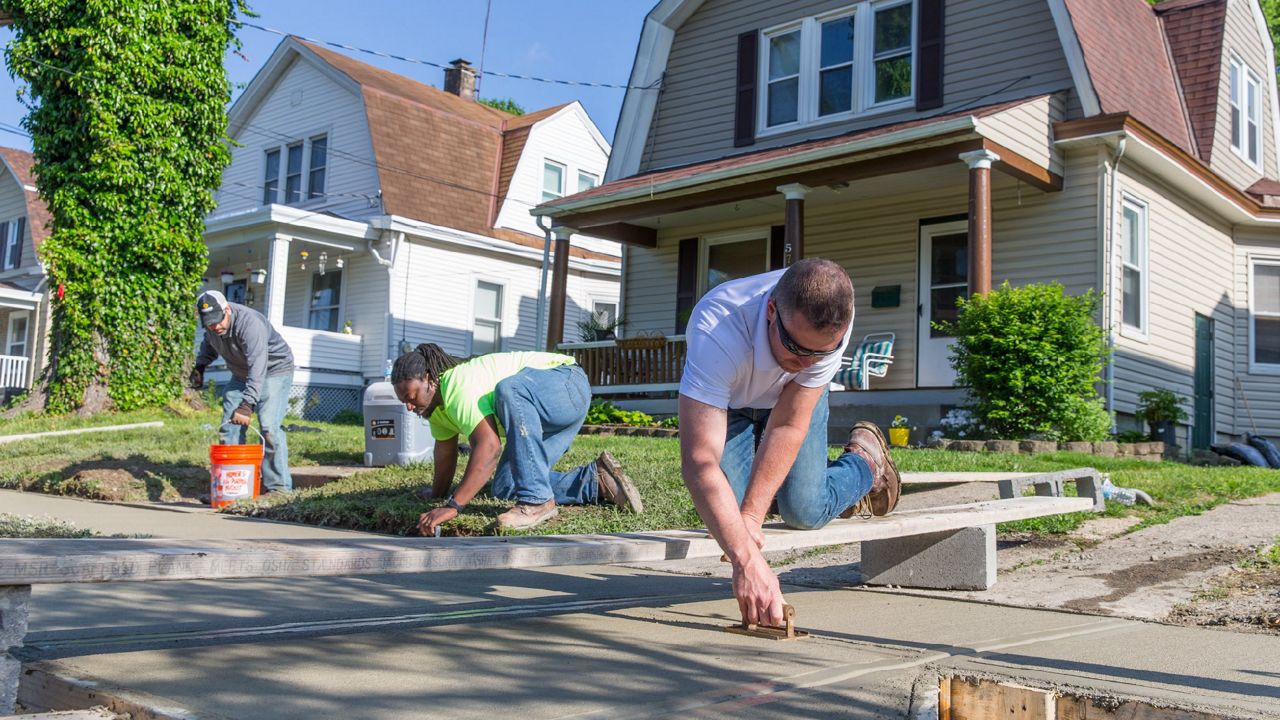CINCINNATI — Over the past 48 years, People Working Cooperatively has helped tens of thousands of greater Cincinnati homeowners pay for much-needed repairs.
Now, through the largest private donation in the nonprofit’s history, PWC executive director Jock Pitts hopes his nonprofit can serve even more low-income and older residents and those with physical limitations to stay in their homes.
What You Need To Know
- People Working Cooperatively received the $2.5 million grant from the Farmer Family Foundation to support low-income, elderly and disabled homeowners
- The Cincinnati-based foundation supports organizations that benefit K-12 education and students
- PWC helps with everything from critical repairs like roof replacements to remodeling bathrooms for clients who use wheelchairs
- Jock Pitts, PWC's executive director, views the funds as helping the organization address some of the more than 2,200 people on its waiting list
PWC received the $2.5 million grant from the Farmer Family Foundation, a philanthropic organization focused on investments that support K-12 education and students.
Brynne F. Coletti, the co-chair of the Farmer Family Foundation, said PWC’s work ties into that mission by enabling children to live safely in their homes and remain close to their school and friends. She noted that stability can lead to better academic performance and mental health.
It’s also an important way to build familial wealth, she said. Those updates increase the property’s value as well.
“This opportunity to pass equity and property on to the next generation provides a foundation for economic stability across generations, stabilizing local housing stock and neighborhoods,” Coletti said.

Founded in 1978, People Working Cooperatively works with in-need homeowners in 20 counties of southwest Ohio, Dayton, northern Kentucky and southeast Indiana.
Projects can range from critical repairs, such as replacing a roof, to energy conservation and weatherization to reduce utility bills. The nonprofit also makes home modifications for clients with mobility or other physical challenges to stay in their homes. That includes things like wheelchair ramps.
One of those beneficiaries is Michael Burnett, 61. Doctors recently diagnosed the U.S. Army veteran with multiple sclerosis diagnosis. Because of the disease and existing knee issues, he must use a walker and sometimes a wheelchair.
That was difficult for him to do in his Madisonville home because it’s an older, smaller home. Just getting inside his bathroom was difficult, Burnett said. Using the shower, toilet and sink wasn’t any easier.
With assistance from the Department of Veterans Affairs, PWC renovated his bathroom last fall.
Crews spent about a month widening the bathroom doorway and adjusting the layout of the bathroom to accommodate Burnett’s new needs. That included moving the toilet farther from the door and putting an easy-to-enter shower in the middle of the room.
Because it’s an older home, crews found other issues once they started to “open things up” and check out the bones of the building, Burnett said. He said they had to gut it and replace all the pipes and plumbing fixtures as well.
“I mean, they were in here with pencil, paper and ruler, and really rebuilt it from the ground up,” Burnett said.
Those types of issues are typical with older homes, Pitts said. But they can compound over time if they’re not addressed right away. Pitts gave an example of a leaky toilet. At first, it’s likely more of an annoyance than anything, he said. But if allowed to leak for a couple years, it could lead to issues with the foundation.
Many times, PWC’s clients face financial hardships that make it difficult for them to take care of their day-to-day personal needs, let alone make potentially costly home repairs, Pitts said.
PWC’s team of professional technicians will often go into a household and notice work that needs to be done, but they can’t do it. It’s not necessarily that they don’t have the funds, Pitts said. It’s just those grant dollars may not be eligible for use on that type of project. Most of PWC’s funding sources comes in the form of those restricted funds.
“When something goes wrong, they just sort of live around it until they can’t anymore,” he added.

What makes these Farmer Family Foundation grant dollars “kind of magic,” Pitts said, is that there are very few rules for how PWC can use them. The only real requirement is the dollars must be spent on home repairs in Butler, Clermont, Hamilton and Warren counties.
Pitts said this provides PWC the flexibility to take care of clients to the fullest degree possible. He described it as the “whole house model.” That’s not only more cost-effective and efficient, he said, but it also benefits the family by giving them a safer space.
“We hope our grant will highlight the need for the important service PWC provides and inspires others to come alongside us as we try to stabilize housing for individuals and families across our community,” said Joyce B. Farmer, co-founder of the Farmer Family Foundation.
Right now, PWC does work at nearly 3,500 homes across the region each year. But Pitts believes these funds from the Farmer Family Foundation will probably enable them to improve that number over the course of the next year.
PWC has a waiting list of more than 2,200 clients in just Butler, Clermont, Hamilton and Warren counties.
The work PWC does aims to benefit much more than one family or homeowner, Pitts said. He views these projects as having the power to stabilize entire neighborhoods through homeownership. It also keeps properties from falling into a potentially dangerous state of blight and disrepair.
“When a family can stay in their house, it relieves pressure on local systems to provide affordable housing and prevents homelessness,” Pitts said. It can even improve health conditions such as asthma — a leading cause for child hospitalization.
“The work we can do because of these grant funds will be transformational, not only for PWC but for the families, neighbors and communities in which we serve,” he added.
Homeowners who need to make critical home repairs can reach out to PWC through its website.
Though his project wrapped up months ago, the outgoing Burnett still calls to check in with the PWC team from time to time, he said. He described them as “hard workers but better people."
“From the secretary when you first get in there to the guys putting up drywall, they’re like family — and I’m so thankful for them,” Burnett said.
“I couldn’t ask for a better job or a better group of people,” he added. “And I know they’re going to help a lot of other people.”



